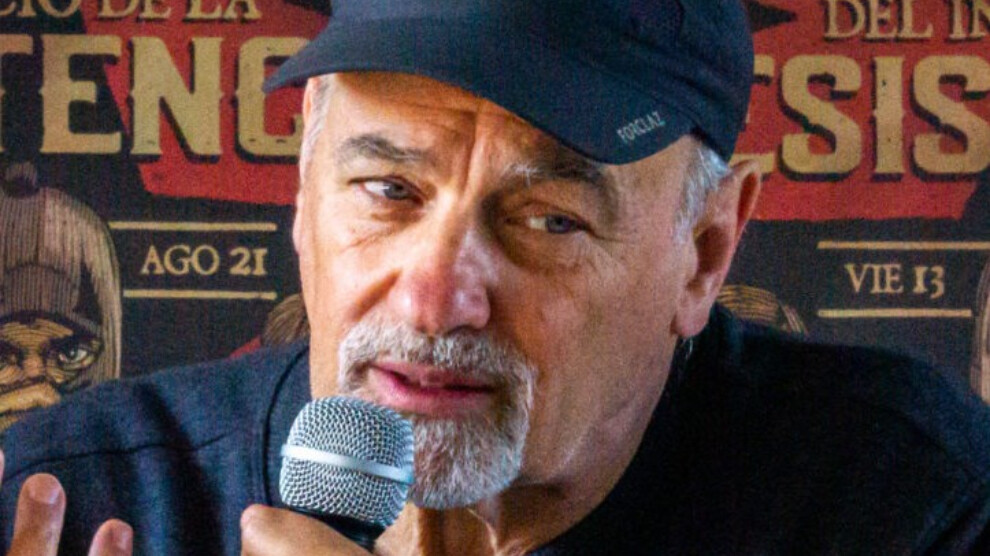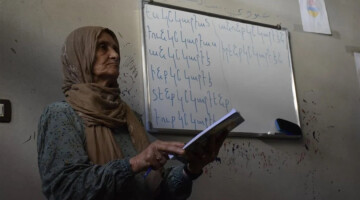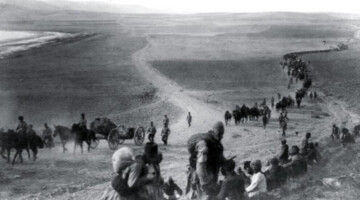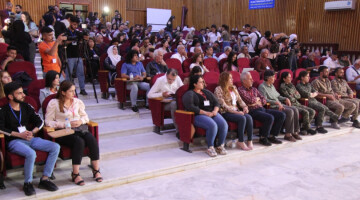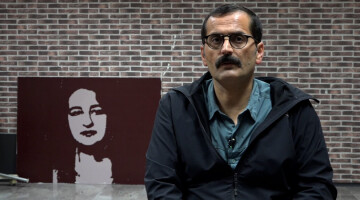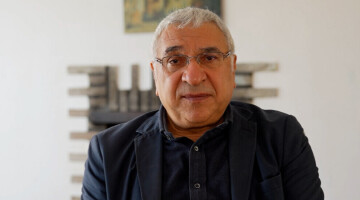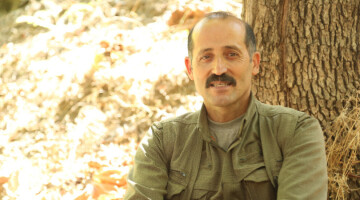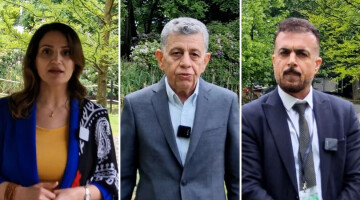We publish the translation of an article written by Raúl Zibechi, who is a writer, a political activist, journalist and analyst, specializing in social movements in Latin America, author of books such as Dispersing Powers: Social Movements as Anti-State Forces (2010) and The New Brazil - Regional Imperialism and the New Democracy
The article was first published on the desenformemonos webpage in Spanish and can be read here
“As Öcalan’s biography shows, his imprisonment and the perseverance of the Kurdish people helped to spread the philosophy of a movement that was little known twenty-five years ago and that today, together with Zapatism, represents the greatest hope for the peoples of the world.”
The 15th of February this year marks the 25th anniversary of the kidnapping of Abdullah Öcalan, leader of the Kurdistan Workers’ Party (PKK), in Kenya and his transfer to Turkey, where he was imprisoned in solitary confinement in İmralı, a small island in the Sea of Marmara. On April 4, he turns 75.
For ten years, guarded by 1,000 Turkish soldiers, Öcalan was the only prisoner in İmralı’s maximum security prison. As the foreword to Freedom Shall Prevail, a short biography of Öcalan published in 2021, states: “İmralı Island thus became a precursor of the infamous Guantanamo detention center”
During the first decade of this century, Öcalan wrote texts and books on history, philosophy and social sciences that revolutionized Kurdish politics, and coined the concept of ‘democratic confederalism’: a non-state political system.
From July 2011 he was not allowed to see his lawyers and it was not until May 2019, following a massive hunger strike demanding an end to his solitary confinement, that he was allowed to see them again.
Between January 2013 and April 2015, talks were held between Öcalan, the PKK and the Turkish state to reach an agreement to resolve the Kurdish question and find a negotiated solution to the long-running conflict. But in 2015 they were broken off, Turkey unleashed a new wave of violence against the Kurdish people, and Öcalan was once again completely cut off.
With their leader in solitary confinement, on November 8, 2018, the Kurdish movement initiated a hunger strike, which was started by HDP party MP Leyla Güven, who was imprisoned in violation of her parliamentary immunity and a court ruling. Around 250 political prisoners joined Güven in an indefinite hunger strike demanding an end to Öcalan’s solitary confinement. Up to 8,000 people around the world participated in the hunger strike in various ways, including political prisoners across Turkey and politicians, academics and activists in Europe, the UK, America and the Middle East.
Given the massive scale of the hunger strike, in January 2019 he was allowed to receive a brief visit from his brother Mehmet, the first contact of any kind with Öcalan since September 2016, and in May he was permitted to receive the first visit from his lawyers since 2011. On 22 May 2019, Öcalan issued a statement calling for an end to the mass hunger strike against his solitary confinement.
When we ask ourselves why a state like Turkey would impose such a cruel measure of isolation and incommunicado, the reflection takes us to our own history as Latin Americans to try to find an answer.
History leads us back to the dismemberment by the Spanish of the leaders of one of the greatest anti-colonial uprisings, Tupac Amaru and Tupac Katari. The aim was not only to punish the rebels who had risen up in 1780, but also to punish all the Andean peoples.
On November 14, 1871, Tupac Katari was slaughtered by four horses in his home town of Peñas, in the presence of many indigenous people. As a form of punishment, his head was placed in the main square of La Paz, his right hand was sent to Ayo Ayo and Sica Sica, his left hand to Achacachi, his right leg to Chulumani and his left leg to Caquiaviri. His body was burned until it turned to ashes, which were thrown to the wind so that no trace of Tupac Katari would remain, so that the indigenous people would no longer rebel against the oppressors.
I believe that the kidnapping and isolation of Öcalan has the same aim. To intimidate the Kurdish people and prevent a peace agreement. As stated in his political biography, “Abdullah Öcalan’s continued incarceration has become the symbol of a Middle East drowning in dark times, and his release has become the symbol of freedom”.
The cruelty of the oppressors is usually motivated by their fear for those who resist them with dignity. They fear the people they represent, their will to persevere in the struggle for collective freedom. But, above all, they mistrust the women from below, because they are the main bearers of collective memory and hope. On this point, which is extensively described in Öcalan’s writings, we must remember that patriarchy is being severely challenged by women all over the world and that the violent reactions to this challenge stem precisely from the shock and horror that their process of emancipation provokes.
Since his isolation in Imrali prison, Öcalan has become one of the world’s leading political and intellectual figures who, in the second half of the 1990s, succeeded in “liberating” himself from inherited dogmatic thinking (in reference to Marxism-Leninism). In dozens of books, Öcalan undertook a profound self-criticism of dogmatic thinking and opened his mind to new ideas, among which democratic confederalism stands out. His criticism of patriarchy was the impetus for Jineolojî, the Kurdish feminist thought developed by the women of the movement.
As Öcalan’s biography shows, his imprisonment and the perseverance of the Kurdish people helped to spread the philosophy of a movement that was little known twenty-five years ago and that today, together with Zapatism, represents the greatest hope for the peoples of the world. A hope based on an ethic that is different from that of the oppressors, and also from that of the revolutionaries who fight symmetrically against capitalism. As affirmed in this sentence from Freedom Shall Prevail: “They have not treated their captivity at the hands of a number of occupying powers as a source of resentment but, on the contrary, have used it to demonstrate that the only way out of the existing quagmire is solidarity and the freedom of women and of peoples; the freedom of one is simultaneously the freedom of the other”.

